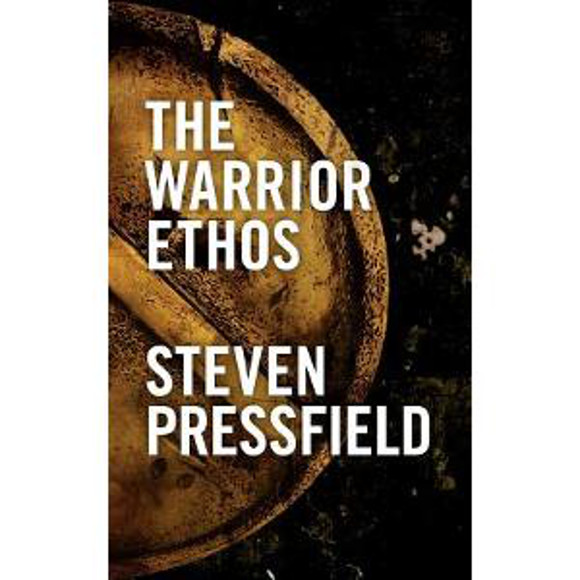*This was one of my most popular posts in 2017. This is a fantastic book and I hope you will check it out.
Steven Pressfield starts The Warrior Ethos with Plutarch’s quote, “The Spartans do not ask how many are the enemy but where are they.” The Warrior Ethos is an attempt to get inside the warrior’s mind and to define the warrior culture. According to Pressfield, courage, honor, loyalty, integrity, and selflessness are among the virtues that make up this warrior mentality.
The antithesis of the way of the warrior is the instinct of self-preservation. The training that marines and soldiers go through is designed to overcome this natural impulse to flee danger. If the soldier gives in to their fear and flees, not only are they putting their own life in danger, they are endangering the men on either side of them. By creating a culture of honor and love for their comrades, as well as a sense of shame for those who let their fear control them, the various branches of the military create young men and women who rise to the occasion and perform acts that are often called heroic. The opposite of shame is honor. A fear of being shamed and a love for their comrades serve to create warriors that refuse to quit, refuse to accept defeat, and refuse to let their mates down.
The Spartan king Agesilaus was once asked what was the supreme warrior virtue, from which all other virtues derived. He replied, “Contempt for death.”
While we usually associate the warrior ethos with those who are trained to fight, how many stories have we heard or read about where a father woke up in the middle of the night and found intruders in their home? The instinct for self-preservation was there. Yet, that was quickly overcome by his love and concern for his family and he willingly laid his own life on the line to try and protect his loved ones. One of the basic tenants of this way of thinking is that of overriding care and love for one’s comrades. The professional soldier does not hold the monopoly on this way of thinking.
Plutarch asked, “Why do the Spartans punish with a fine the warrior who loses his helmet or spear but punish with death the warrior who loses his shield?” Because helmet and spear are carried for the protection of the individual alone, but the shield protects every man in the line.
If you have ever wondered why some people are wired to be warriors and others are not, this book provides some answers. Pressfield, a United States Marine himself when he was younger, is not just writing about concepts. These are also things that he has lived. As a writer of historical war novels, he has also explored the warrior ethos from a variety of angles. This book will help the reader better understand what makes a warrior tick. It might also wake up the latent warrior that is inside each of us.
Click here to buy The Warrior Ethos!
Annie and I are serving the Lord in the US and South America. We are training leaders and helping plant churches. We would love to have you on our team! Here is the link if you would like to be a part! Obrigado!

